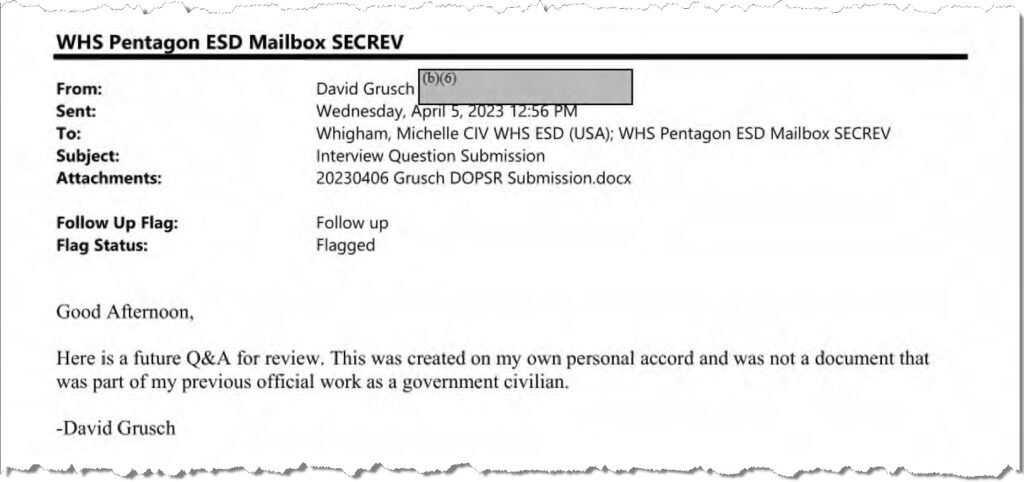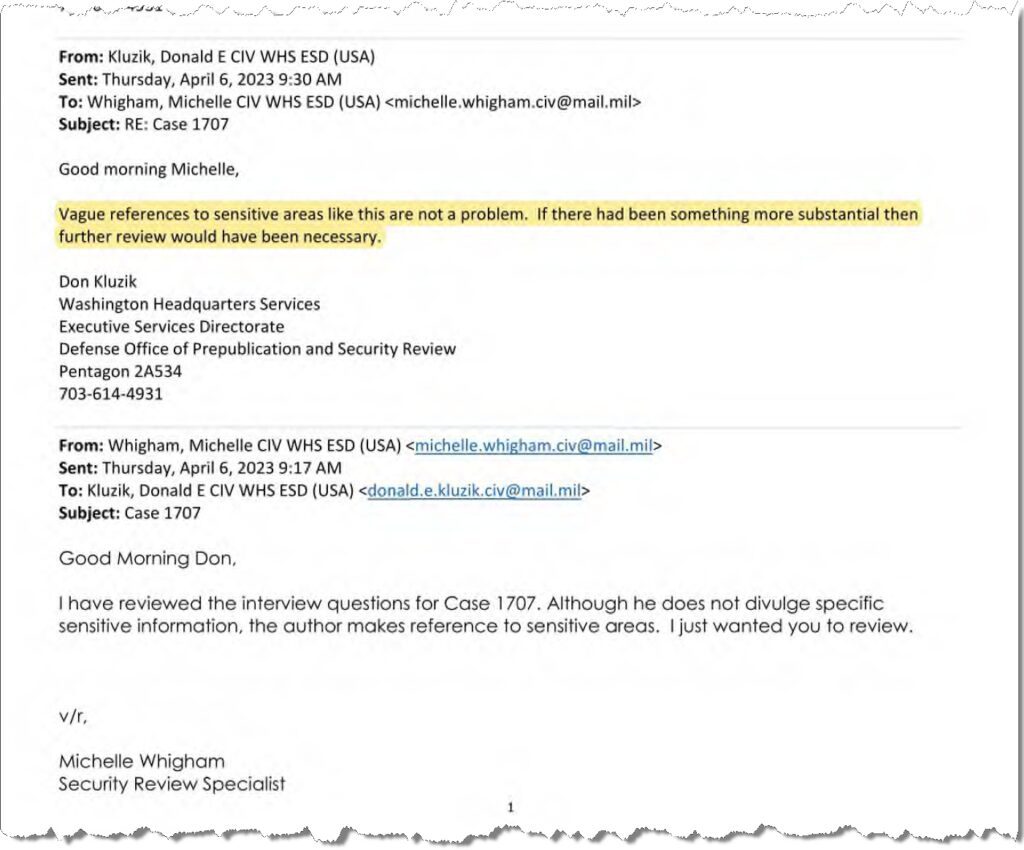
In a recent release of documents obtained via FOIA case 23-F-0946, new information has surfaced surrounding the media-nicknamed “UFO Whistleblower,” David Grusch. Grusch, who has claimed to have knowledge regarding “non-human intelligence”—believed by many to refer to extraterrestrial beings—had made headlines with his story, yet a crucial piece of the puzzle seemed elusive: his Defense Office of Prepublication and Security Review (DOPSR) submission that he, and the media, often references.
The Black Vault has extensively highlighted the absence of Grusch’s actual approved DOPSR submission. While Grusch remained tight-lipped, a FOIA request filed by The Black Vault has now shed light on the matter from the Department of Defense’s end. Although the recent release still leaves many questions unanswered due to significant redactions, it does provide a more comprehensive picture of how everything went down.
From the documents, it’s evident that Grusch submitted two DOPSR requests for review. The first, an “Interview Question Submission”, was sent on March 7, 2023. His second, a “future” interview question submission, was sent less than a month later on April 5, 2023. Both submissions received approval on April 4, 2023, and April 6, 2023, respectively. Strangely, the responses to Grusch’s interview questions, the most awaited details, were redacted under exemption (b)(6), shielding them from the public eye. This exemption, as stated in the FOIA response letter, protects information that, “…would constitute a clearly unwarranted invasion of the personal privacy of individuals.”
The internal correspondence within the DOD also adds a bit to the story. Security Review Specialist Michelle Whigham expressed concerns regarding vague references made by Grusch about certain “sensitive areas.” Her apprehension was clear in her message to her colleague, Don Kluzik, where she stated, “Although he does not divulge specific sensitive information, the author makes reference to sensitive areas. I just wanted you to review.” Kluzik stated in his response, “Vague references to sensitive areas like this are not a problem. If there had been something more substantial then further review would have been necessary.”
With the answers being redacted in the DOPSR paperwork that Grusch wrote for approval, it is only a guess on what “vague” references and locations they are referring to.
The released documents beg a more significant question: If the DOD has provided a portion of the material, albeit redacted, why hasn’t Grusch shown his requests in full? Such transparency would only bolster his credibility. But by the email exchange above within DOPSR, it seemed like nothing was of detailed note that caused any concern whatsoever, except for “vague” references to facilities which were no problem to them. What else was in the request?
To date, although Grusch’s DOPSR material was referenced in each of his news interviews, and at the UAP hearing, it has yet to be released by Grusch despite being fully cleared for “Open Publication” by DOPSR. Why he has not released it to date remains a mystery. Past attempts by The Black Vault in June of this year to contact Mr. Grusch’s attorney, Charles McCullough, specifically asking about the DOPSR material have remain unanswered.
###
Note: The Black Vault will be filing an appeal to argue the redactions.
Document Archive
Follow The Black Vault on Social Media:

